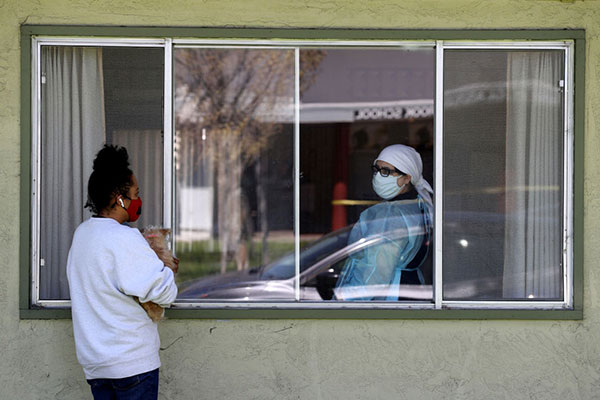Table of Content
Survey the property for safety equipment such as grab bars. Talk with staffers and managers to see whether they are friendly and professional. Ask about medication management, personal care options and staffing at night. Participate in a few social and recreational activities, and check out the outdoor areas, too.
Connecticut License Lookup to verify if a facility is licensed and to read reports. Get in touch with the long-term care ombudsman for details on inspections and violations. Review the table below (“State-by-State Assisted Living Transparence”) for details on how transparent and accessible facility-specific information is.
When Nursing Homes Do Not Comply with Rules
The requirements for conducting weekly evaluations of residents receiving skilled nursing care in residential care facilities. The department of health may establish a program of recognition of nursing facilities that provide the highest quality care to residents who are recipients of medical assistance under Chapter 5111. The program may be funded with public funds appropriated by the general assembly for the purpose of the program or any funds appropriated for nursing home licensure. Notwithstanding any other provision of this chapter, a residential care facility in which residents receive skilled nursing care pursuant to this section is not a nursing home.

However, these programs have limited slots and may cover only certain regions of a state. Medicaid assisted living qualifications and coverage vary by state depending on factors such as your age, marital status, where you currently live, and your income and assets. Plus, Ohio doesn't have the authority to fine assisted living communities. Info is comprehensive and easy to find but may be slightly outdated due to inspections required every two years. Most of the data on inspections and violations is readily available.
Other Medicaid Financial Regulations for Assisted Living and Nursing Homes
Only two states' assisted living websites offer data on facility pricing . Cost is definitely something to pay extra attention to in disclosure documents and during conversations with administrators. Also, look over the sections having to do with eviction so you understand what happens if you cannot pay any longer. Another intriguing program, although it's not SSI-specific, is Alaska's Pioneer Homes. These homes are state-owned and state-operated assisted living communities. They keep costs lower than private facilities would and offer various types of financial assistance.

A residential care facility may not admit or retain an individual requiring skilled nursing care that is not authorized by this section. A residential care facility may not provide skilled nursing care beyond the limits established by this section. Because skilled nursing homes involve medical care, costs are higher. The regulations, licensing, staffing and training requirements are stricter than in assisted living. Building a nursing home can offer backers a high return on investment. The state of washington ' s regulations require new nursing home construction, effective march 26, 2000, to have “ a mechanical cooling system capable of maintaining a temperature of 75 degrees fahrenheit for areas occupied by residents and a cooling system that has mechanical refrigeration equipment to provide summer air conditioning.
Security and Safety
Learn about nursing home quality from the NHQI site, which gives details about Care Compare’s nursing home quality measures. Providers can learn how to update facility information and more about Nursing Home quality measure data and the Skilled Nursing Facility Quality Reporting Program . Before sharing sensitive information, make sure you’re on a federal government site.
For example, some of the same staffers may work in both assisted living and nursing care. Residents from both may socialize with one another, too. That's one reason CCRCs appeal to couples with different care needs.
Ohio Nursing Home Regulations
“Resident” includes a resident, patient, former resident or patient, or deceased resident or patient of a long-term care facility or a residential care facility. Upon admission and thereafter, the right to adequate and appropriate medical treatment and nursing care and to other ancillary services that comprise necessary and appropriate care consistent with the program for which the resident contracted. This care shall be provided without regard to considerations such as race, color, religion, national origin, age, or source of payment for care. Nursing homes can still receive Medicare and Medicaid funding for as long as six months after an immediate jeopardy finding if it's in the best interest of residents to stay put . The facility must repay funds received during this period if it doesn't correct its deficiencies during an approved timetable. If a survey finds that nursing homes are out of compliance, what happens depends on how serious the non-compliance is.

Any interest or other investment proceeds earned on money in the fund shall be credited to the fund and used to make medicaid payments in accordance with division of this section. A nurse aide or other individual about whom a statement is required by this division to be included in the nurse aide registry may provide the director with a statement disputing the director’s findings and explaining the circumstances of the allegation. The statement shall be included in the nurse aide registry with the director’s findings. If the prospective resident has a sponsor whose identity is made known to the home, the home shall also inform the sponsor, before admission of the resident, of the home’s status relative to the medical assistance program. Written acknowledgement of the receipt of the information shall be provided by the resident and, if the prospective resident has a sponsor who has been identified to the home, by the sponsor. The written acknowledgement shall be made part of the resident’s record by the home.
Seniors have little time to evaluate their options unless the skilled nursing facility is part of a CCRC decision made in advance of the health emergency. Otherwise, a chronic health issue requiring medical care may force the move to a nursing home. Many folks use the terms, “nursing home” and “assisted living,” interchangeably.

Upon the issuance of any order of revocation, the person whose license is revoked, or the county home or district home that has its license revoked, may appeal in accordance with Chapter 119. On or before the last day of December each year, the director shall submit a report to the governor and the general assembly describing the unit’s activities that year and its effectiveness in improving resident outcomes. State and federal government websites often end in .gov.
Click on “More info” next to inspections and complaints and then on ID numbers. For most facilities, you can read about violations and corrective plans—but they don't seem to be listed with every facility that had violations. That's a lot of time for a facility to fall out of compliance. Search under “Housing with Services,” the assisted living equivalent. However, you must submit a FOIA request to see a facility's plan of correction. Adult Residential Care Directory to see whether a facility is licensed.

Any person has a cause of action against a person or government entity for harm resulting from violation of division or of this section. If it finds that a violation has occurred, the court may award damages and order injunctive relief. The court may award court costs and reasonable attorney’s fees to the prevailing party. When files and records have been expunged under division of this section, all rights and privileges are restored, and the individual, the director, and any other person or government entity may properly reply to an inquiry that no such record exists as to the matter expunged. The result of an action commenced pursuant to division of this section by a person authorized under division of this section shall bind the resident or the resident’s estate that is the subject of the action. Transfer or discharge actions shall be documented in the resident’s medical record by the home if there is a medical basis for the action.

No comments:
Post a Comment